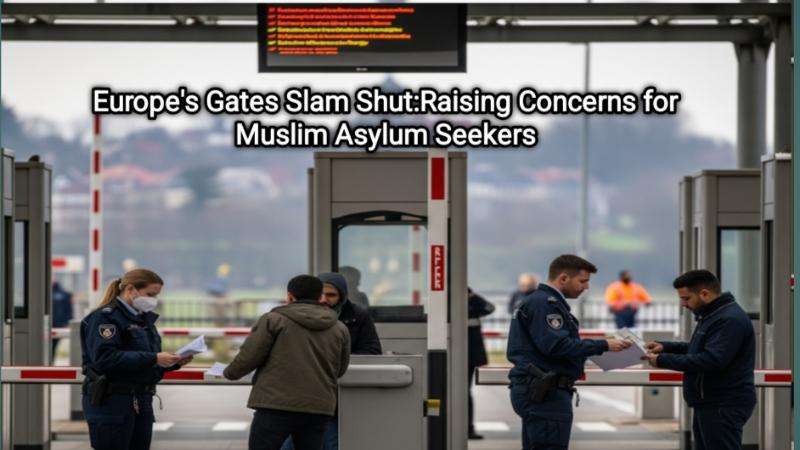A wave of international condemnation has erupted following far-right Israeli National Security Minister Itamar Ben-Gvir's provocative storming of the Al-Aqsa Mosque compound on Monday. The audacious intrusion, marking Israel's 1967 occupation of East Jerusalem, has been denounced by Jordan, Qatar, and a chorus of international voices as a dangerous escalation, a blatant violation of international law, and a direct assault on the historical and religious status quo of one of Islam's holiest sites.
Ben-Gvir, accompanied by fellow extremist Israeli officials including Minister of the Negev, Galilee and National Resilience Yitzhak Wasserlauf and Knesset member Yitzhak Kroizer, forcibly entered the sacred Muslim compound. This marks the seventh such intrusion by the controversial minister since his appointment to Prime Minister Benjamin Netanyahu's government in 2022, signaling a worrying pattern of aggressive provocations against the holy site.
Jordan’s Foreign Ministry wasted no time in condemning the act, labeling it a "flagrant violation of the historical and legal status quo of Al-Aqsa Mosque and of Israel's obligations as the occupying power." The ministry unequivocally stressed that such intrusions, no matter how frequent or provocative, "will not alter the fact that East Jerusalem is an occupied city over which Israel holds no sovereignty." This statement underscores the deeply rooted international consensus that recognizes East Jerusalem as occupied territory, a position Israel continues to defy.
Echoing Jordan's strong rebuke, Qatar’s Ministry of Foreign Affairs described Ben-Gvir’s move as part of "ongoing Israeli attempts to alter the religious and historical status quo of Al-Aqsa Mosque." The Qatari ministry further warned that such actions constitute "a provocation to more than two billion Muslims worldwide," highlighting the profound global religious implications of Israel's policies in Jerusalem. The ministry issued a stark warning, stating that "Israel’s escalation policy in the occupied Palestinian territories—including the ongoing genocidal war in Gaza—will inevitably widen the circle of violence and chaos across the region and undermine efforts to implement a two-state solution and achieve a comprehensive, just and sustainable peace." This powerful statement directly links the Al-Aqsa provocation to broader Israeli actions, including the ongoing conflict in Gaza, emphasizing the interconnectedness of regional stability and respect for religious sites.
Beyond the ministerial presence, the Islamic Endowment Department in Jerusalem reported a significant influx of illegal Israeli settlers into the mosque compound throughout the day. At least 2,092 settlers, under heavy police protection, forced their way into the complex to commemorate the occupation of East Jerusalem. Disturbingly, many were observed performing provocative rituals within the mosque's courtyards, a blatant disregard for the sanctity of the site and a further inflaming of tensions. A second wave of more than 665 settlers entered the compound in the afternoon, following the midday prayer, intensifying the sense of a coordinated and deliberate campaign to assert Israeli dominance over the holy site.
Since the outbreak of the Gaza war on October 7, 2023, Israeli authorities have imposed draconian restrictions on Palestinians' access from the occupied West Bank into East Jerusalem. These measures are viewed by Palestinians as part of a broader, insidious effort by Israel to Judaize East Jerusalem, where Al-Aqsa Mosque is located, and to systematically erase its deeply ingrained Arab and Islamic identity. This policy, which has been incrementally implemented since 2003, has seen Israel allow illegal settlers into the flashpoint compound on an almost daily basis, with the only exceptions being Fridays and Saturdays.
The Al-Aqsa Mosque stands as the world's third-holiest site for Muslims, a beacon of faith and a symbol of Palestinian heritage. While Jews refer to the area as the Temple Mount, claiming it was the site of two Jewish temples in ancient times, the historical and legal status quo recognizes it as an exclusively Muslim holy site under Jordanian custodianship. Israel occupied East Jerusalem during the 1967 Arab-Israeli War and unilaterally annexed the entire city in 1980, a move that has never been recognized by the international community.
The latest intrusion by Minister Ben-Gvir serves as a stark reminder of the volatile situation in Jerusalem and the ongoing efforts to alter its demographic and religious landscape. For Muslims worldwide, the sanctity of Al-Aqsa Mosque is non-negotiable, and any perceived threat to its status is met with profound distress and indignation. The international community, therefore, faces a critical imperative to uphold international law, protect religious freedoms, and ensure the preservation of the historical and legal status quo of Jerusalem's holy sites for the sake of regional peace and global religious harmony.

_8.jpg)
_5.jpg)
_8.jpg)




.svg)


